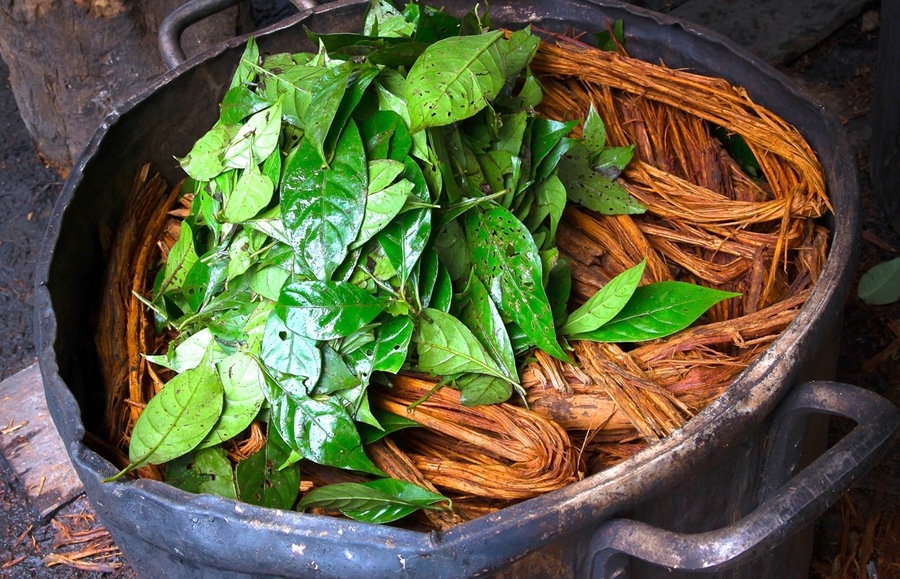RIO DE JANEIRO, BRAZIL – The pioneering of Brazilian psychedelic science has marked a new finding. After performing the first controlled clinical trial with this class of substances (ayahuasca, in this case) against depression, Northeast researchers show that the progress seems to stem from a regression in the inflammatory reaction.
The theory linking this mental disorder with inflammation, a typical immune system response to attack by external agents such as viruses, has not yet been proven. Nor is it known what triggers mild inflammation in depressed patients, only that they have altered levels of compounds, such as cortisol, which play a role in its modulation.
The new study, published on July 10th in the specialized Journal of Psychopharmacology, adds a piece to the neurobiology of depression puzzle.
Nicole Leite Galvão-Coelho, from the Department of Physiology and Behavior of the Federal University of Rio Grande do Norte (UFRN), is leading the study. The biologist is currently a post-doctoral fellow at the University of Western Sydney (Australia).

“This is the first study in the world that identifies in humans, both patients and healthy subjects, the anti-inflammatory action of a classic psychedelic,” says Nicole. “Before that, only a few other in vitro and animal models had proven this potential.”
Classic psychedelics such as ayahuasca (tea used in rituals of religions such as Santo Daime), LSD, and psilocybin (present in so-called magic mushrooms) act on serotonin receptors in the brain. People with depression have decreased levels of this neurotransmitter, and antidepressant drugs act to boost them.
The physiologist worked together with Dráulio Araújo and Fernanda Palhano-Fontes from the Brain Institute and Onofre Lopes University Hospital, both belonging to UFRN, in charge of the randomized study with a placebo group.
Nicole analyzed the blood of 28 subjects with depression in this pioneering clinical trial (14 took ayahuasca and 14 a placebo), in addition to 45 subjects without the disorder. Samples were collected before treatment and 48 hours after. To measure the degree of inflammation, she used a protein (known by the abbreviation CRP) produced in larger amounts in the liver when the inflammatory reaction of the immune system occurs.
“Ayahuasca significantly reduced both inflammation and depression after 48 hours,” says the researcher.
The inflammatory reaction, as well as the action of psychedelics to reduce it, may be the key to progressing in the treatment of the resistant type of depression. It afflicts a third of the over 300 million people with the disorder in the world who are unable to improve with conventional antidepressants, based on the inhibition of serotonin recycling by the nervous system.
This was the form of the disease investigated in the UFRN’s pioneering study, whose subjects had been suffering from the disorder for an average of 11 years. The question the group would like to answer is whether altered cortisol levels, also called the stress hormone, would be at the root of resistance to available drugs.
This is due to the fact that, in the case of chronic patients, the cortisol level appears to be reduced, while in those who are only beginning to show symptoms of depression it typically rises. The lowered amount of the hormone could possibly explain the discrete inflammation found in patients with resistant depression.
“We need more studies, with more individuals and more collections, to better understand this complex relationship of the neurobiology of depression and thus help the 30 percent of patients who fail to respond to treatment.”
According to the World Health Organization (W.H.O.), the number of people with depression increased by 18.4 percent between 2005 and 2015. With the Covid-19 pandemic and the varying degrees of social isolation it has entailed, with no clear end in sight, it seems likely that the disorder will escalate to become the great illness of the 21st century.
Renouncing the therapeutic potential of psychedelics, for an increasing number of specialists, is an extravagance that humanity can not afford.
What is Ayahuasca?
The Ayahuasca, hoasca, or yagé, a drink originated from shamanic and indigenous rituals of various ethnicities from Brazil and Peru, is a tea prepared with two vegetable ingredients: leaves from the Chacrona bush (Psychotria viridis) and bark from the Mariri vine, caapi, or jagube (Banisteriopsis caapi).
The Chacrona contains the main psychoactive compound of the brew, N,N-Dimethyltryptamine (DMT). The Mariri vine provides the alkaloids harmine, harmaline, and tetrahydroarmine, which inhibit a DMT debilitating enzyme and thus prolong its psychodelic effect.
In the 20th century, Ayahuasca use became a sacrament for syncretic religions, such as Santo Daime, Barquinha and União do Vegetal, that emerged in the Amazon and spread to Brazil and other countries. Christian, spiritist, indigenous and African elements are blended in these religious ceremonies.
Source: Folhapress

